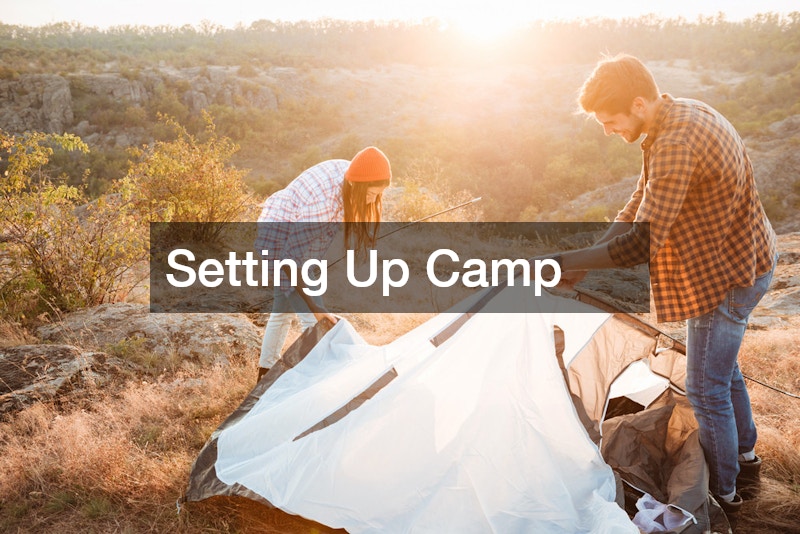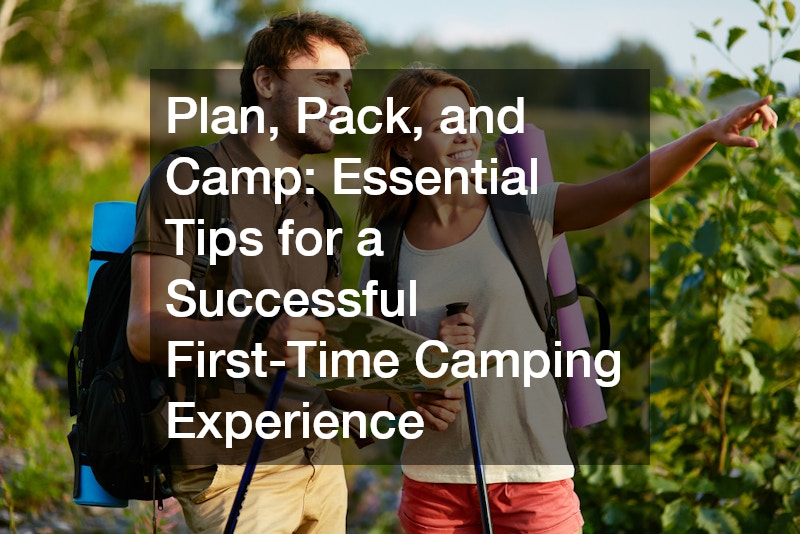
Camping is a great way to disconnect from the hustle and bustle of everyday life and immerse yourself in the beauty of nature. For first-time campers, the experience can be exciting yet overwhelming. With proper planning, packing, and preparation, your first camping adventure can be a memorable and successful one. Whether you’re camping in a traditional tent, using a camper, or joining the rising trend of rooftop campers, here are some essential tips to ensure that your trip is smooth and enjoyable.
Step 1: Plan Your Trip
The first step to a successful camping experience is thorough planning. Whether you’re camping for one night or multiple days, the key to a smooth trip is selecting the right campsite and gathering essential information about your destination.
Choose the Right Campsite
Start by researching your destination and choose a campsite that suits your needs. Do you prefer a campsite near a lake, a forest, or a mountaintop? If you’re a first-timer, look for campsites with amenities like bathrooms, picnic tables, and water access, which can make your stay more comfortable. National and state parks often offer well-maintained campsites for beginners.
Consider the location and accessibility. Campsites with easy access to hiking trails or scenic spots can enhance your experience. If you’re venturing into more remote areas, make sure you’re prepared with maps and navigation tools, as cell service might be limited.
Check the Weather Forecast
Before you pack, always check the weather forecast for the area where you’ll be camping. This will help you decide what to pack and how to prepare. Weather can change quickly, especially in mountainous or coastal regions, so it’s crucial to be ready for anything from hot, sunny days to chilly, rainy nights.
Plan Your Activities
Camping isn’t just about sleeping in a tent. It’s an opportunity to explore the outdoors. Plan activities such as hiking, fishing, or even just stargazing. If you’re camping with children, bring simple games or activities like scavenger hunts to keep them engaged.
Step 2: Pack the Essentials
Packing can make or break your camping trip. You don’t want to be caught without an essential item in the middle of the woods, but you also don’t want to overpack. Here’s a list of essentials that will ensure you’re prepared.
Shelter and Sleeping Gear
For most beginners, a standard tent is the go-to shelter option, but rooftop campers—those who camp on the top of their vehicle using specialized rooftop tents—are becoming increasingly popular. Regardless of the type of shelter you choose, it’s important to pack a high-quality tent, along with tent stakes and a ground tarp. Make sure you know how to set up your tent before you arrive at the campsite.
For sleeping, pack a sleeping bag rated for the expected temperature. Don’t forget a sleeping pad or inflatable mattress to add a layer of comfort and insulation from the cold ground. Pillows or compact travel pillows are easy to bring along and can make a huge difference in your sleep quality.
Cooking and Food
One of the joys of camping is cooking outdoors. For first-time campers, bringing simple, easy-to-cook meals is the best approach. Prepping meals ahead of time can make the experience more enjoyable. For example, marinate your meats or chop vegetables before leaving home, so you can spend more time enjoying the outdoors rather than cooking.
A camping stove or portable grill is essential, and don’t forget the fuel. Some campsites have fire pits or grills, so check ahead of time. Bring a reliable lighter or matches, pots and pans, and reusable utensils. And of course, pack plenty of food and snacks. Make sure to store food in airtight containers or a cooler to avoid attracting wildlife to your campsite.
Water is crucial. If your campsite doesn’t provide potable water, make sure to bring enough for drinking, cooking, and cleaning.
Clothing and Layers
Dressing in layers is essential when camping, as temperatures can fluctuate significantly between day and night. Start with moisture-wicking base layers, add insulating layers for warmth, and finish with a waterproof jacket to protect you from rain or wind. Don’t forget durable, comfortable footwear like hiking boots or sturdy sneakers. Extra socks, hats, and gloves can help you stay warm during chilly nights.
Step 3: Camp and Enjoy
Now that you’ve planned your trip and packed the essentials, it’s time to enjoy your camping experience. Here are some tips to make your time at the campsite as enjoyable as possible.
Setting Up Camp
When you arrive at your campsite, take your time setting up. Pick a flat, dry area to pitch your tent, and avoid areas with too much shade, as they can become damp overnight. If you’re using a rooftop camper, ensure your vehicle is parked on level ground for a comfortable night’s sleep.
Make sure your tent or camper is securely staked or fastened to prevent it from shifting in windy conditions. Once your shelter is set up, create a cozy and organized camp by setting up your cooking area, camp chairs, and any other equipment you brought along.
Building a Campfire
A campfire is often the heart of a camping trip, where everyone gathers to cook, stay warm, and socialize. Many campsites have designated fire pits, but always check fire regulations, as some areas may have restrictions. To build a successful campfire, start with small twigs or kindling and gradually add larger logs. Always keep water nearby to safely extinguish the fire when you’re done.
Leave No Trace
Camping is a wonderful way to experience nature, but it’s important to leave the environment as pristine as you found it. Follow the “Leave No Trace” principles by cleaning up all trash, properly disposing of waste, and being mindful of the impact you have on the environment.
Final Thoughts
Camping can be a rewarding experience, providing a chance to unplug, relax, and connect with nature. By planning carefully, packing smartly, and preparing for all conditions, you’ll ensure that your first camping adventure is a success. Whether you’re a traditional tent camper or part of the growing community of rooftop campers, these tips will help you navigate your first trip with confidence and ease. Happy camping!
.


